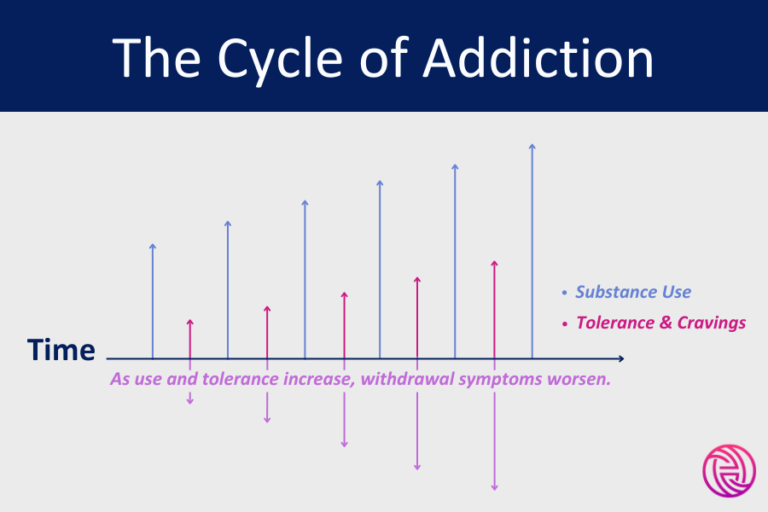Our goal is to provide education and insight on healthcare topics related to Substance Use Disorder. To ensure we provide accurate and trustworthy information, our writers follow strict editorial guidelines.
When you’re struggling with drug and/or alcohol use, it can be hard to know if you have a chronic condition like substance use disorder. Today’s blog will help you understand your use and what it could mean. But, the simple answer is: if you are unable to stop using drugs or alcohol or are unable to function without using, you may meet the definition of a substance use disorder.
Understanding Substance Use Disorder
Substance use disorder (SUD) is a medical condition that’s characterized by the inability to control substance use despite negative consequences. Substance use disorder is also known as addiction, a chronic condition based on an uncontrollable urge to use drugs, alcohol, or other addictive substances that typically turns into a cycle. Similarly to substance use disorder, there are other addictions like sex or gambling, which may or may not involve alcohol or drugs, but are also problem behaviors and compulsions with potentially serious consequences.
Do You Have a Substance Use Disorder? A 10-Question Quiz
Answer yes or no to the following questions:
- Do you crave drugs or alcohol frequently?
- Are you unable to control how much you indulge in substances?
- Has the amount/frequency of drug or alcohol use increased over time?
- When you don’t drink or do drugs, do you experience negative withdrawal symptoms like sickness, anxiety, cold sweats, headaches, etc?
- Do you continue to use even when you don’t want to or when there are consequences?
- Has your drug or alcohol use caused you to forget or miss obligations?
- Have you lost interest in activities you used to enjoy?
- Does your drug or alcohol use cause relationship issues with friends or family?
- Do you engage in risky behaviors?
- Have you lied about your drug or alcohol use?
The severity of substance use disorder can vary but if you answered 1-2 questions with yes, you likely have a mild substance use disorder. If you answered 3 or more, you may have a moderate to severe substance use disorder. While any degree of SUD can be challenging to live with, there are options for treatment so you can decrease use and manage the risks associated with use.
What To Do When You Have Substance Use Disorder
The first thing to do is to have an honest conversation with yourself about how SUD is affecting you and what you want your life to look like. While the standard treatment involves complete abstinence, harm reduction methods where the goal is to use less are also common and worthy of consideration.
When you’re ready to address your substance use disorder, there are several treatment options available to you, including:
- In-patient treatment: 24/7 in-person support to address SUD that commonly involves medical detox or supervision.
- Outpatient treatment: direct treatment services where detox and medical supervision is not necessary.
- Groups: hour-long meetings with others in recovery like AA or NA.
Do People Recover From Substance Use Disorder?
Yes! Every day hundreds of people choose to recover from substance use disorder and addiction. People all across the world have been able to find recovery and regain control over their lives, free from addiction. They’ve gotten new jobs, had families, earned promotions, and achieved other accomplishments. A substance use disorder diagnosis might just be a wake-up call which means you have to be more mindful of your health to avoid the negative consequences of continued use, much like other common chronic medical conditions. SUD is not unmanageable and there are many treatment options available.
Ready to Start Treatment?
We’ve got you covered. We provide whole-person health services to individuals living with substance use disorder including primary care, medications, counseling recovery coaching, and more.
Our services are not one-size-fits-all. They are personalized to your needs and goals. Instead of shaming you into change or judging your decisions, we use Solution-Focused Therapy to help you move forward.
If you need a higher level of care than what we can offer, we’ll provide you with resources to help.
Call or text us at (877) 465-6650 to start today!



